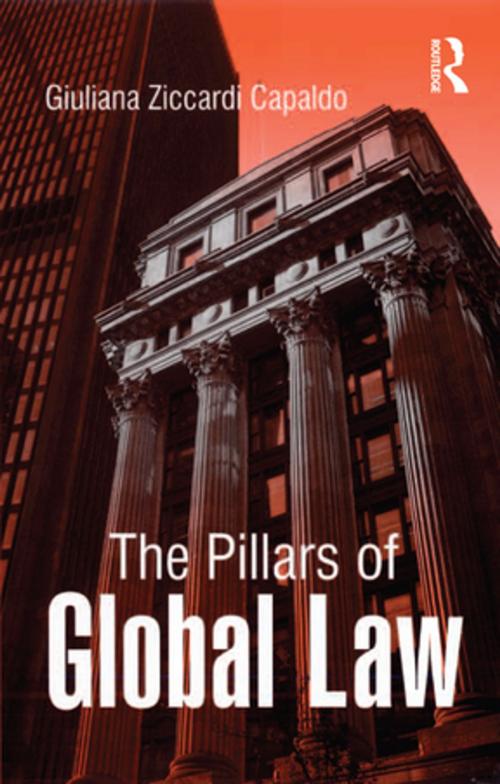| Author: | Giuliana Ziccardi Capaldo | ISBN: | 9781317021339 |
| Publisher: | Taylor and Francis | Publication: | February 24, 2016 |
| Imprint: | Routledge | Language: | English |
| Author: | Giuliana Ziccardi Capaldo |
| ISBN: | 9781317021339 |
| Publisher: | Taylor and Francis |
| Publication: | February 24, 2016 |
| Imprint: | Routledge |
| Language: | English |
This book deals with the transformation of the international legal system into a new world order. Looking at concepts and principles, processes and emerging problems, it examines the impact of global forces on international law. In so doing, it identifies a unified set of legal rules and processes from the great variety of state practice and jurisprudence. The work develops a new framework to examine the key elements of the global legal system, termed the 'four pillars of global law': verticalization, legality, integration and collective guarantees. The study provides an in-depth analysis of the differences between traditional international law and the new principles and processes along which the universal society and world power are organized and how this is related to domestic power. The book addresses important changes in key legal issues; it reconstructs a complex legal framework, and the emergence of a new international order that has still not been studied in depth, providing a compass that will prove a useful resource for students, researchers and policy makers within the field of law and with an interest in international relations.
This book deals with the transformation of the international legal system into a new world order. Looking at concepts and principles, processes and emerging problems, it examines the impact of global forces on international law. In so doing, it identifies a unified set of legal rules and processes from the great variety of state practice and jurisprudence. The work develops a new framework to examine the key elements of the global legal system, termed the 'four pillars of global law': verticalization, legality, integration and collective guarantees. The study provides an in-depth analysis of the differences between traditional international law and the new principles and processes along which the universal society and world power are organized and how this is related to domestic power. The book addresses important changes in key legal issues; it reconstructs a complex legal framework, and the emergence of a new international order that has still not been studied in depth, providing a compass that will prove a useful resource for students, researchers and policy makers within the field of law and with an interest in international relations.















